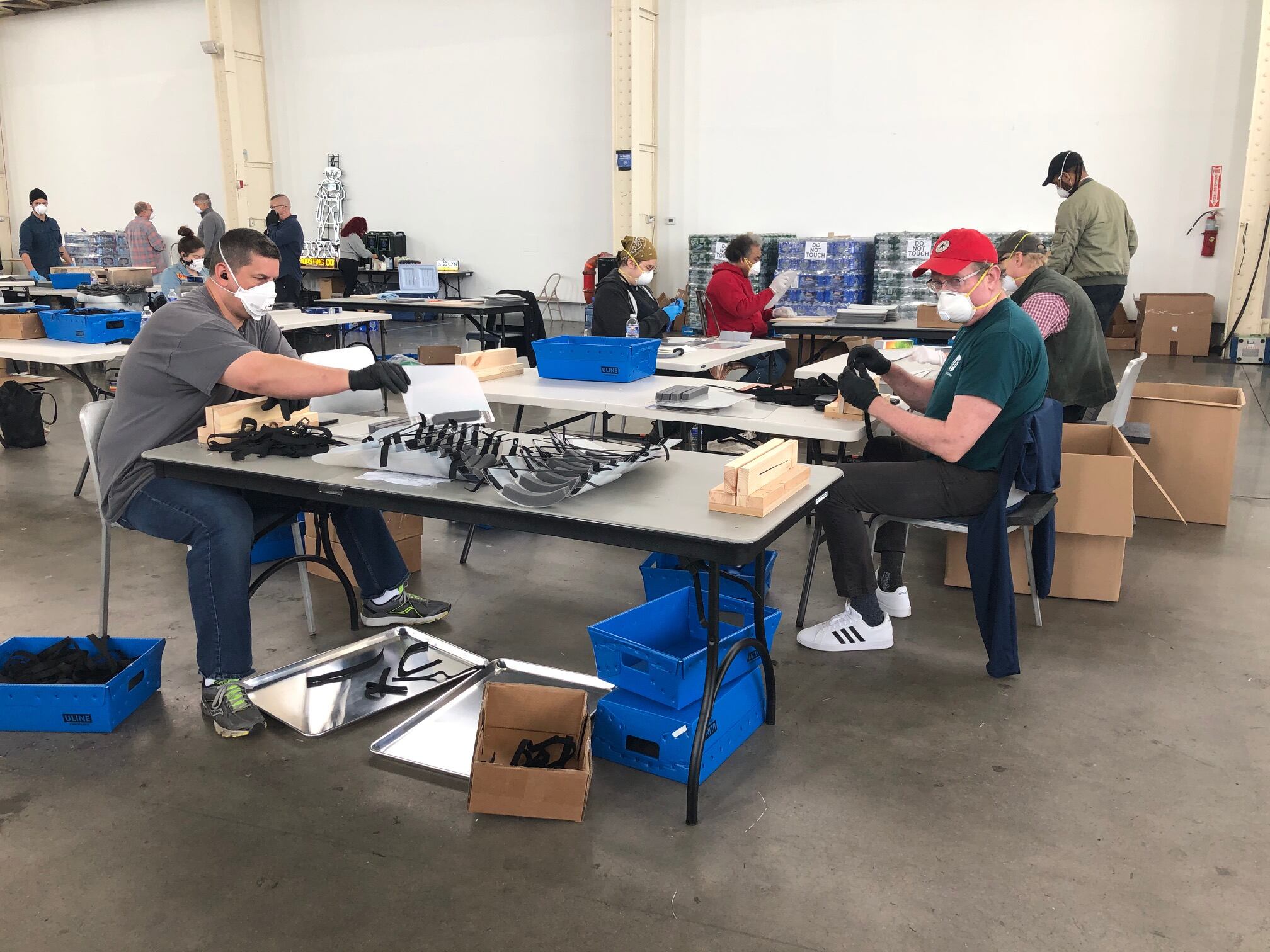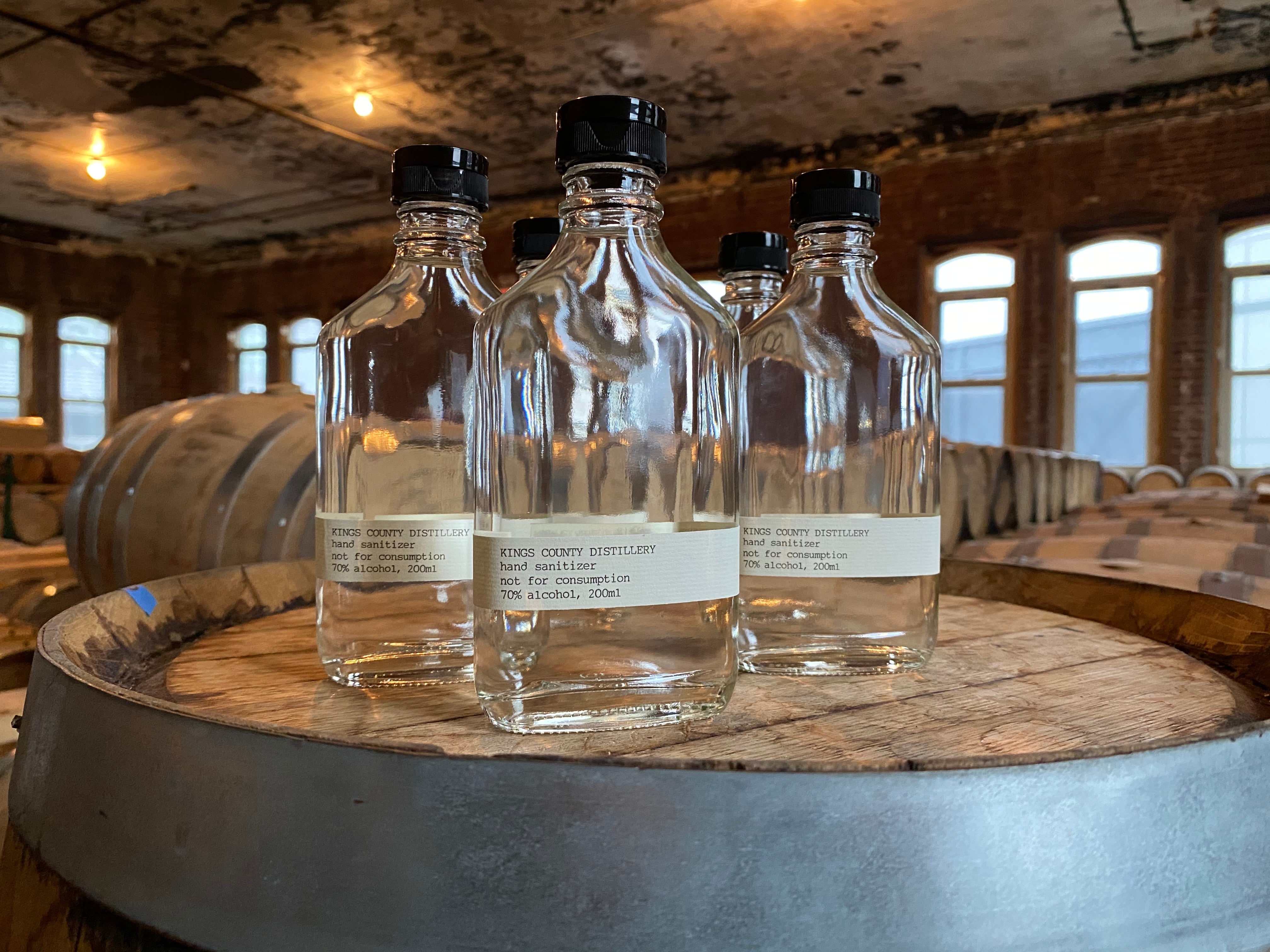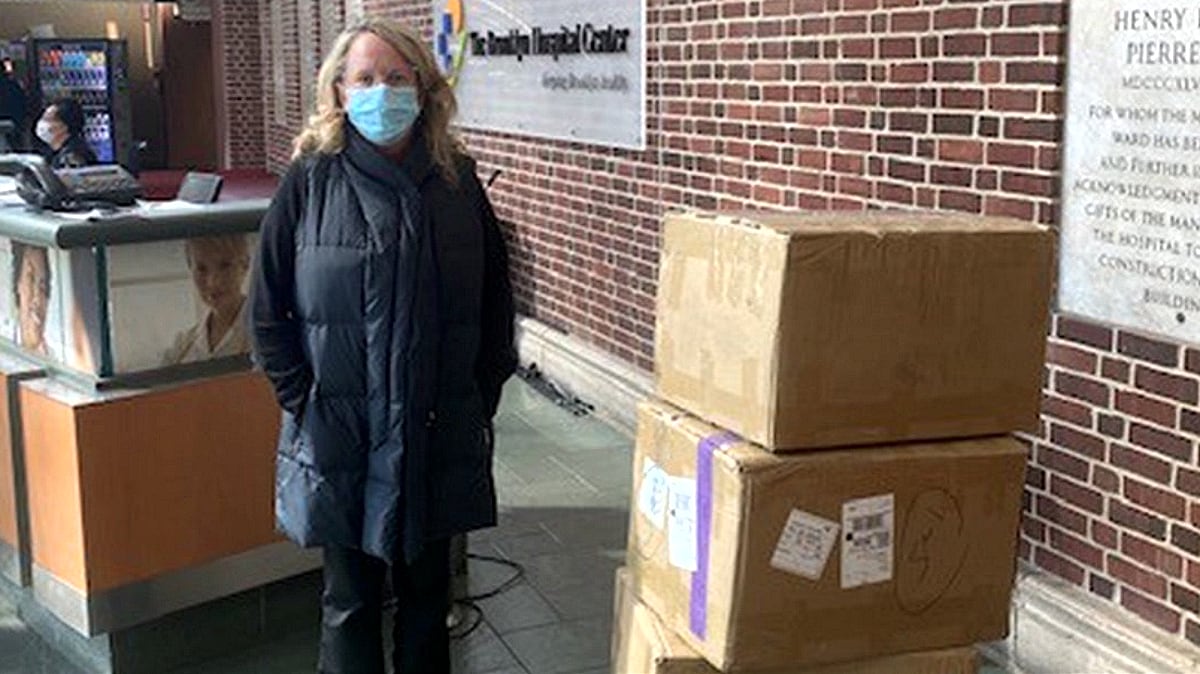When the coronavirus pandemic shut down nonessential businesses in New York, Duggal Visual Services found itself in a difficult situation. The company — which focuses on the fabrication of projects including digital displays, exhibitions and other large-scale items for clients — was forced to furlough many of its employees when work was halted.
Then in March, the city’s Economic Development Corporation called on local businesses to make protective equipment and other supplies needed to fight against the coronavirus pandemic. Duggal, alongside another Brooklyn Navy Yard fabrication company called Bednark, found a way to turn their production into essential work to help frontline medical workers.
Duggal and Bednark staff, as well as other workers from around the city, have set up shop inside Duggal Greenhouse, an event space better known for holding galas, weddings, and even Democratic presidential candidate debates. Today, it is a manufacturing center for plastic face shields that medical workers use throughout New York.

This isn’t the first time the 225-acre Brooklyn Navy Yard and its workers have been called upon to help in a crisis. During World War II, the shipyard earned the nickname the "Can-Do Shipyard" for its efforts in constructing ships and other military vessels. Now, the industrial complex and its tenants are aiding in a fight against an invisible enemy.
In the past two weeks, Duggal Greenhouse workers have made 240,000 face shields, according to Duggal’s vice president of estimating and fabrication, Howard Silverstein. It hit its all-time one-day manufacturing high of 30,000 items last Tuesday.
What’s more, Duggal was able to hire about 200 paid workers, Silverstein pointed out, all of whom are making at least minimum wage. About half of those people are Duggal’s furloughed workers, and the company has committed to giving them their original salaries. Lunch is provided since many local restaurants have shut their doors.
Further down the road, perfumery D.S. & Durga is making hand sanitizers. A large percentage of the initial production has been donated to local hospitals, and it's also in talks with the city to donate gel sanitizer.
"When the shortage in NYC came, we asked ourselves, ‘What could we do?’" D.S. & Durga president Kavi Moltz said via email. "To move quickly to make hand sanitizer, we decided to use our existing packaging components. For fragrance, we made a batch of the essential oil portion of our ‘Big Sur After Rain.’"

Likewise, Kings County Distillery has converted its bourbon distilling production into hand sanitizer production. The affordable hand sanitizer is available for local pickup and shipping to New York State addresses for a donation of $1 to $20. Proceeds go to the manufacturing of the products, as well as any lost overhead for the company. It has also donated 5,000 hand sanitizer bottles to local hospitals, law enforcement officials, and fashion designers making protective equipment like masks.
Kingbridge, a cleaning and tailoring service focused on film and TV productions, has started making cloth face masks. Meanwhile, the fashion brand Lafayette 148's patternmakers have designed surgical gowns, and it partnered with military apparel and armor manufacturer Crye Precision to manufacture these products, with the goal of having 320,000 by the end of April. Some will be made at the Brooklyn Navy Yard, while others will be made in China.

Lafayette 148 has also worked with its partners in China to send 18,000 surgical masks and 10,000 N95 masks to local hospital workers, with more coming in the upcoming weeks. It will also donate 20 percent of sales from April 12 to April 30 to the Brooklyn Hospital Center.
"I’m on the board of the Brooklyn Hospital Center, so I’ve gotten to see firsthand the tragedy that’s going on," Lafayette 148 co-founder and CEO Deirdre Quinn said in a statement. "They exemplify the everyday heroes coming together across our city to protect us and save lives."



